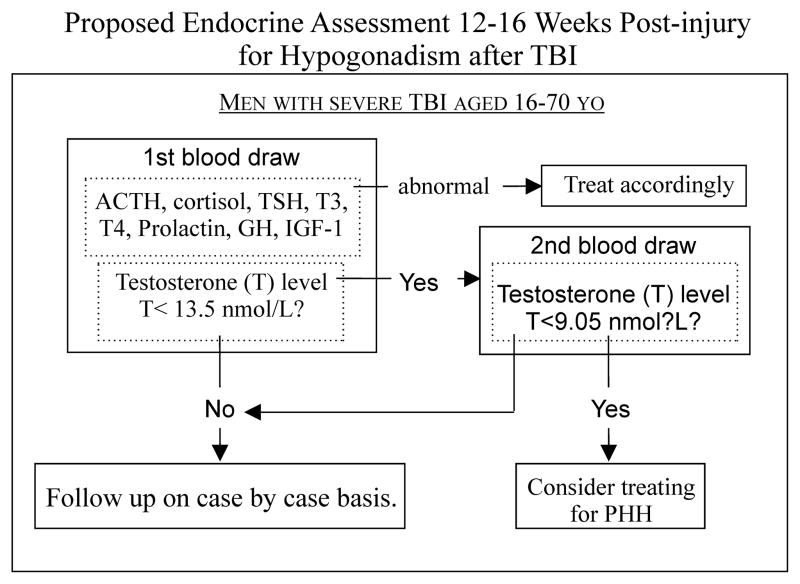Figure 3.
Diagnosis of post-traumatic hypogonadotropic hypogonadism should be incorporated into a full endocrinological workup for hypopituitarism in order to determine an appropriate course of therapy. Adrenal insufficiency, hypothyroidism, and hyperprolactinemia should all be treated prior to hypogonadism since these hormones may affect testosterone levels. In the absence of these endocrinopathies, two-step testosterone testing is recommended to detect persistent hypogonadotropic hypogonadism (PHH). This should be conducted between 12–16 weeks after TBI. If a testosterone screening test level is below 13.5 nmol/L, then a second confirmatory test should be conducted. If the confirmatory test level is below 9.05 nmol/L, then this individual is at risk for poor outcome, and treatment for PHH may be beneficial.

